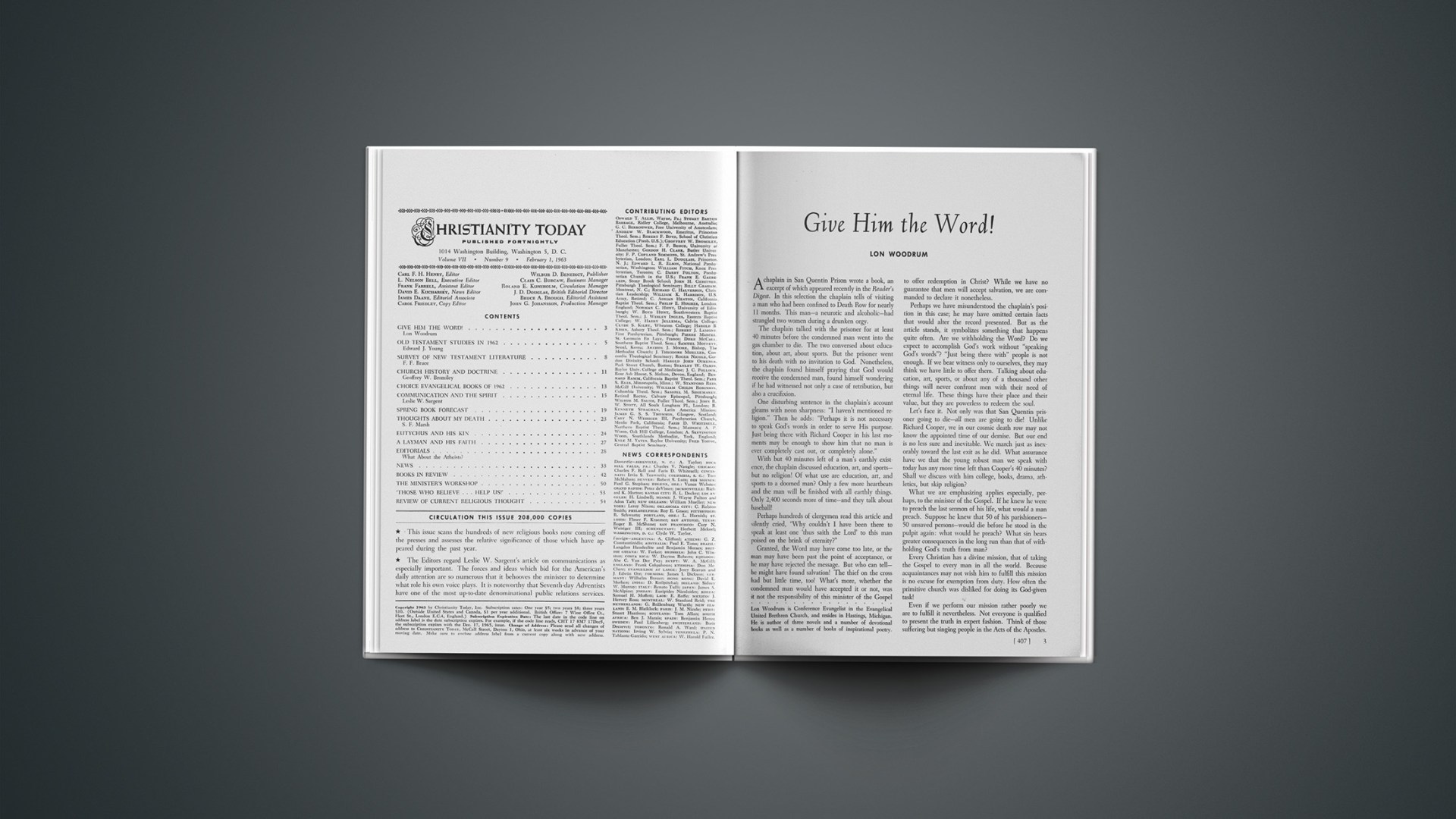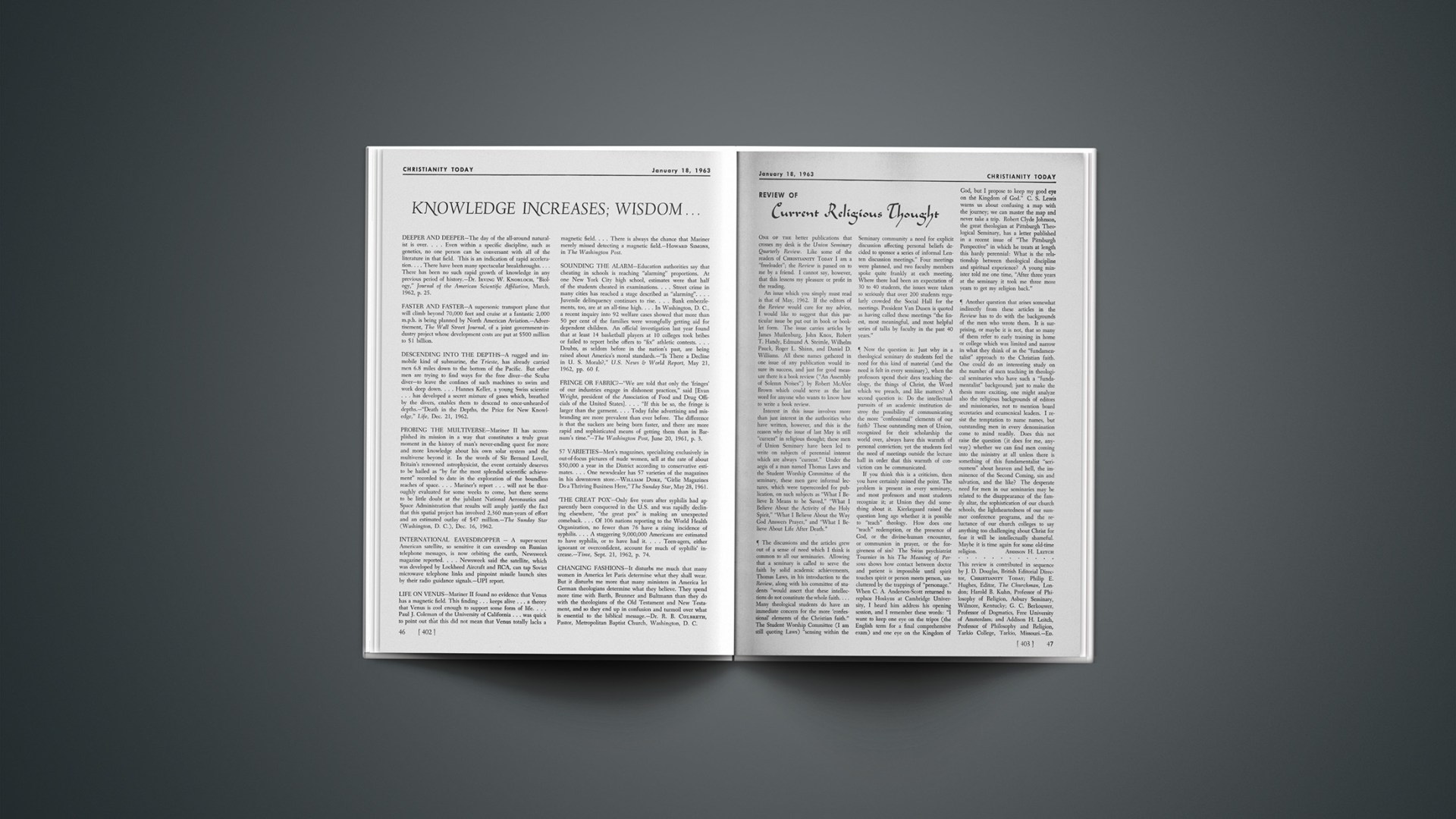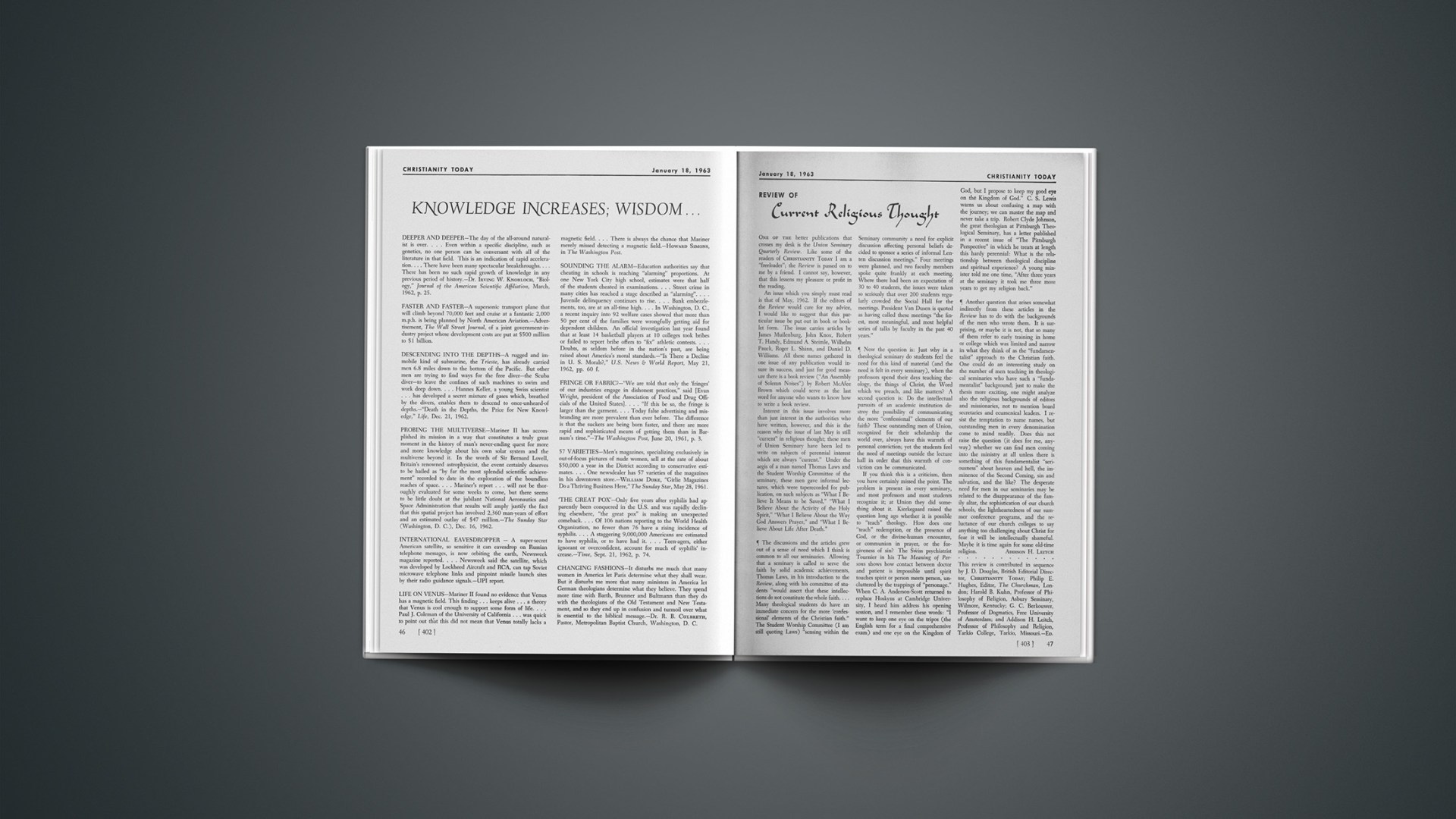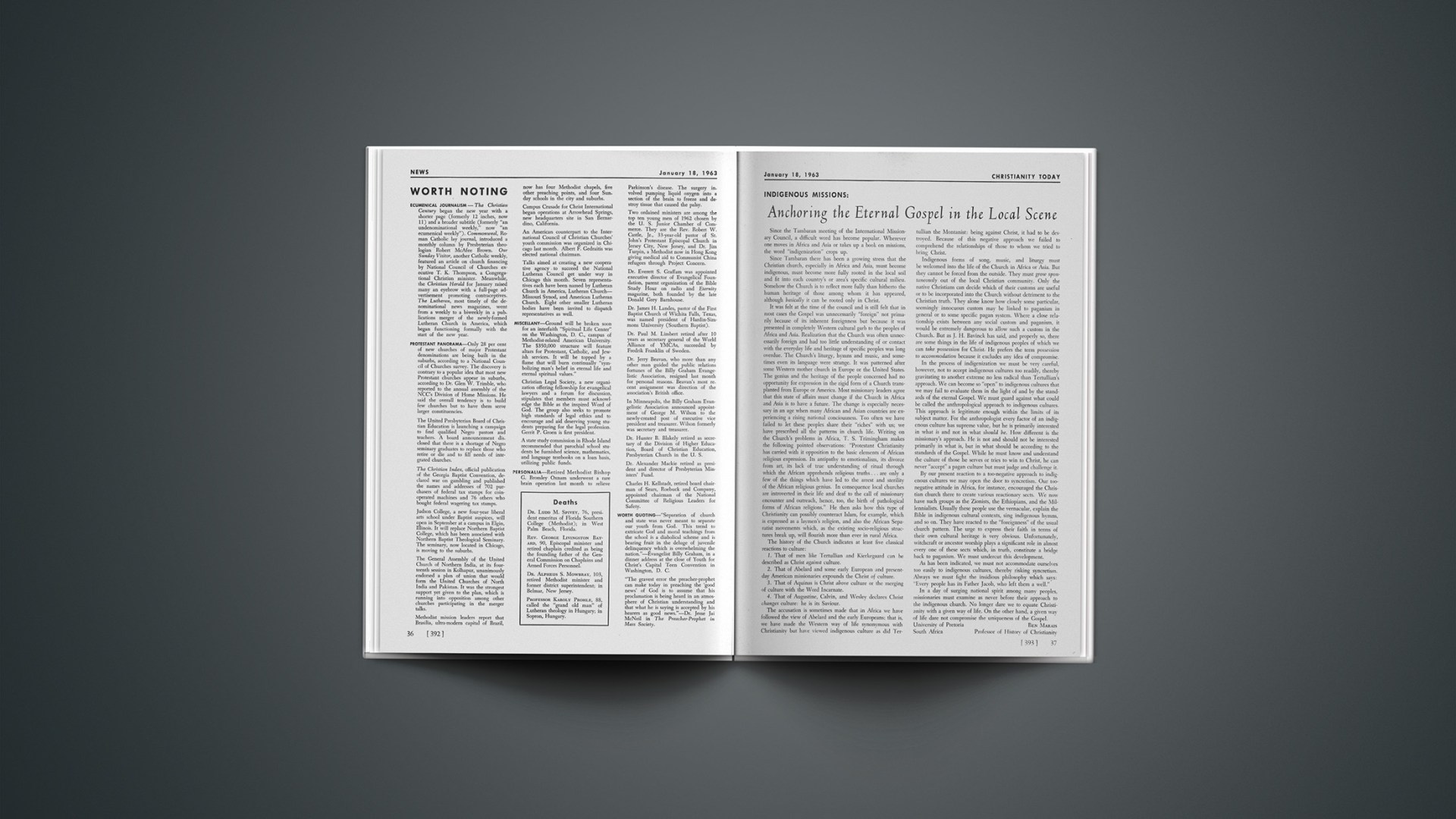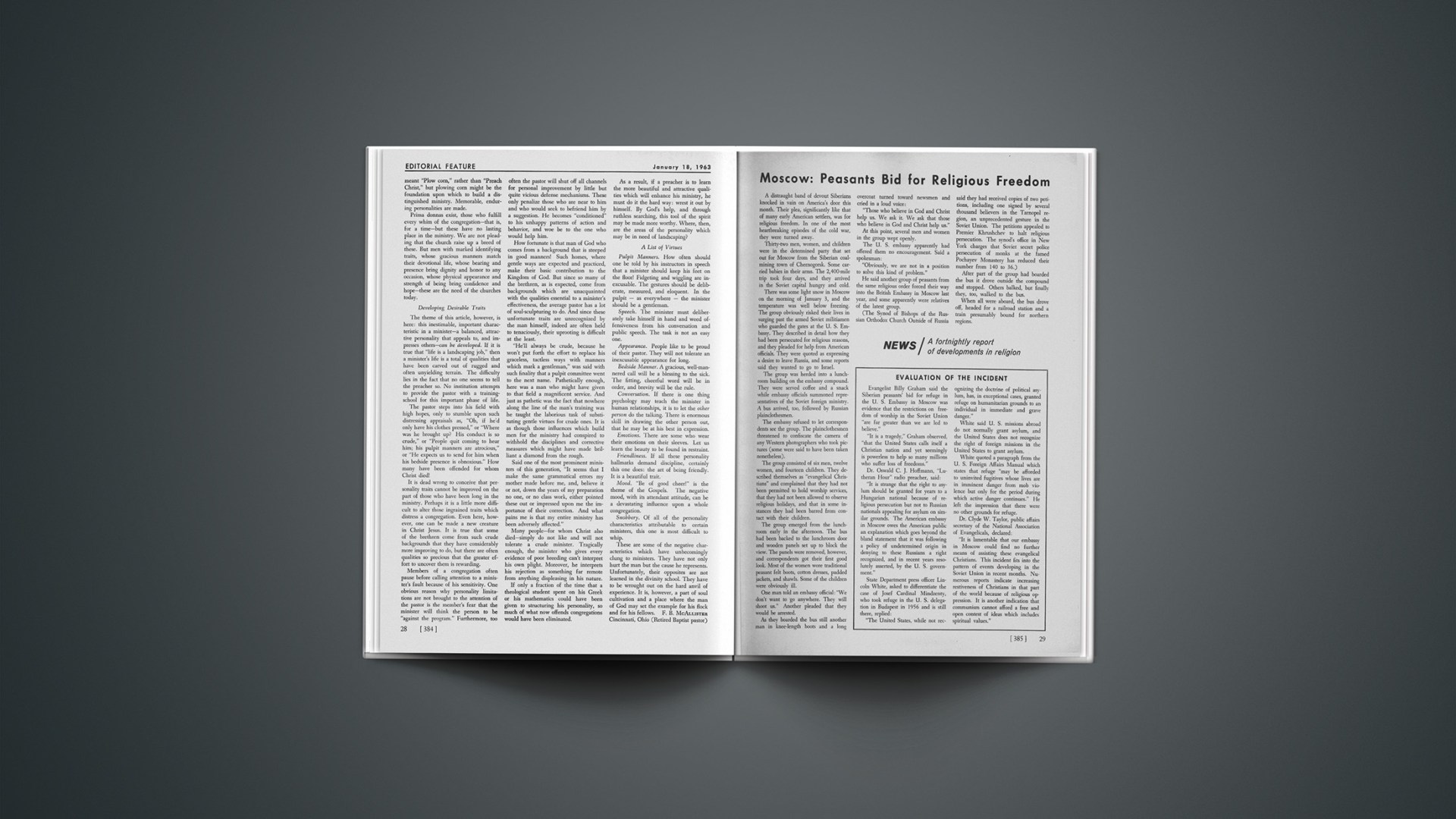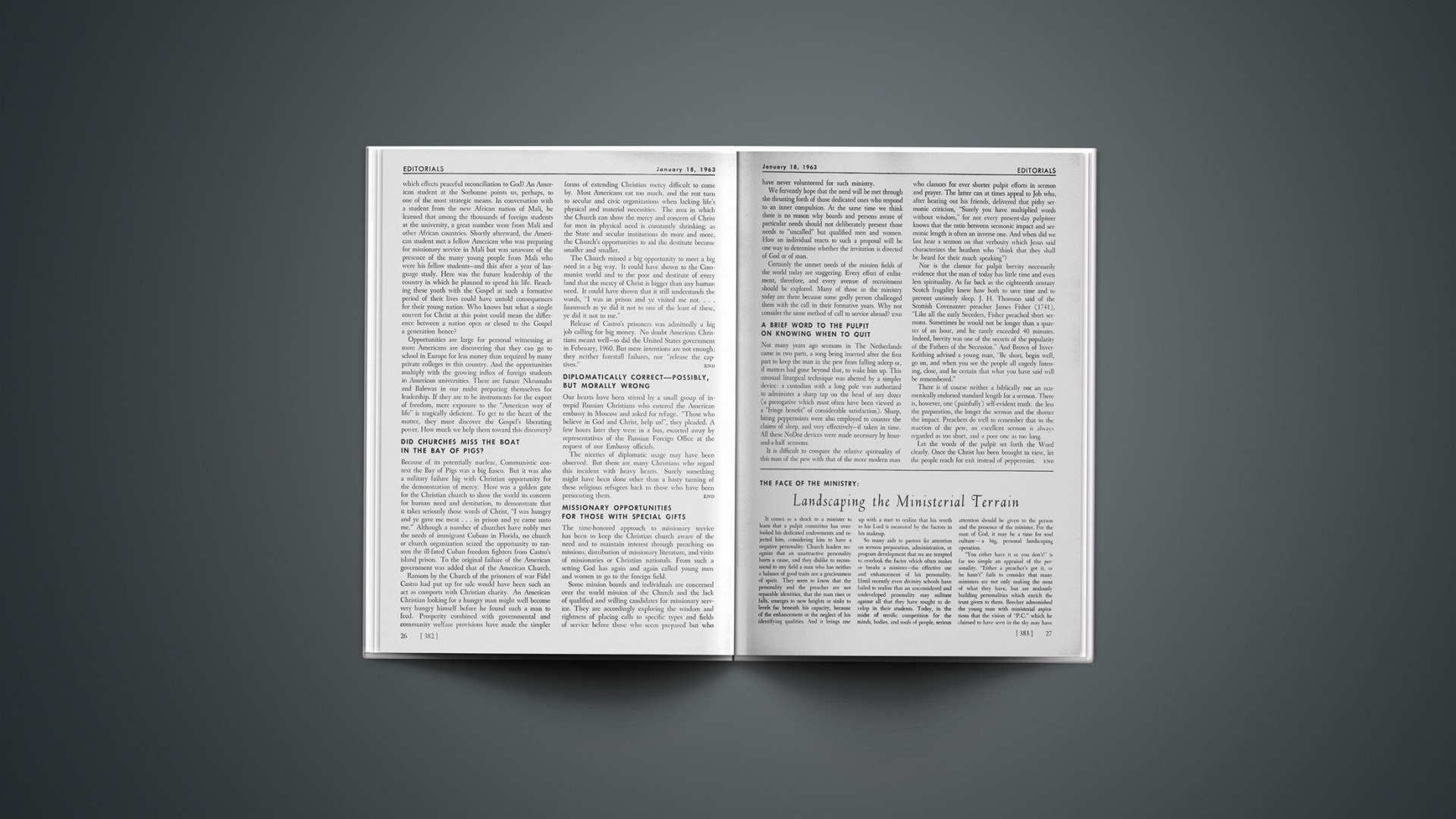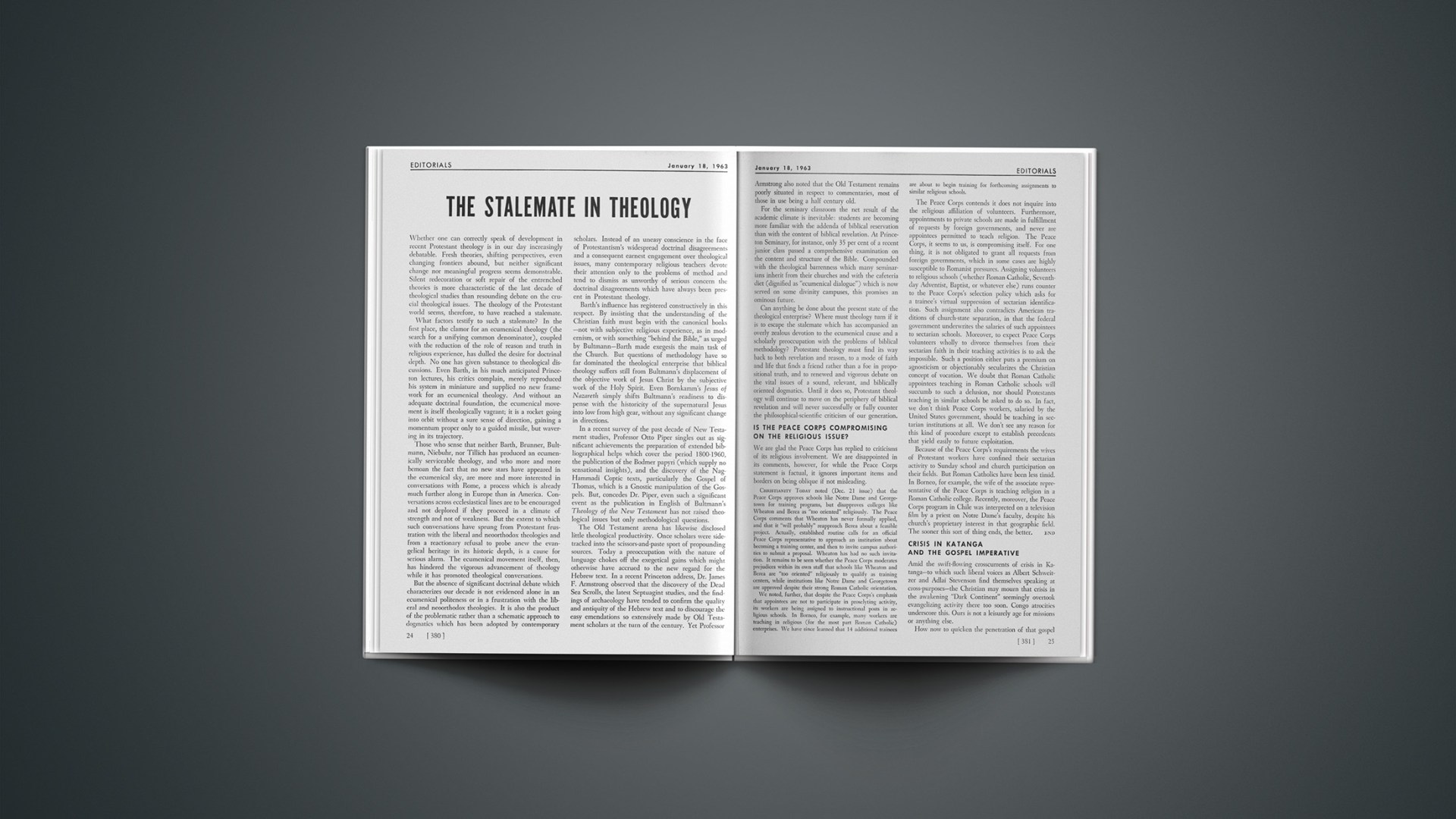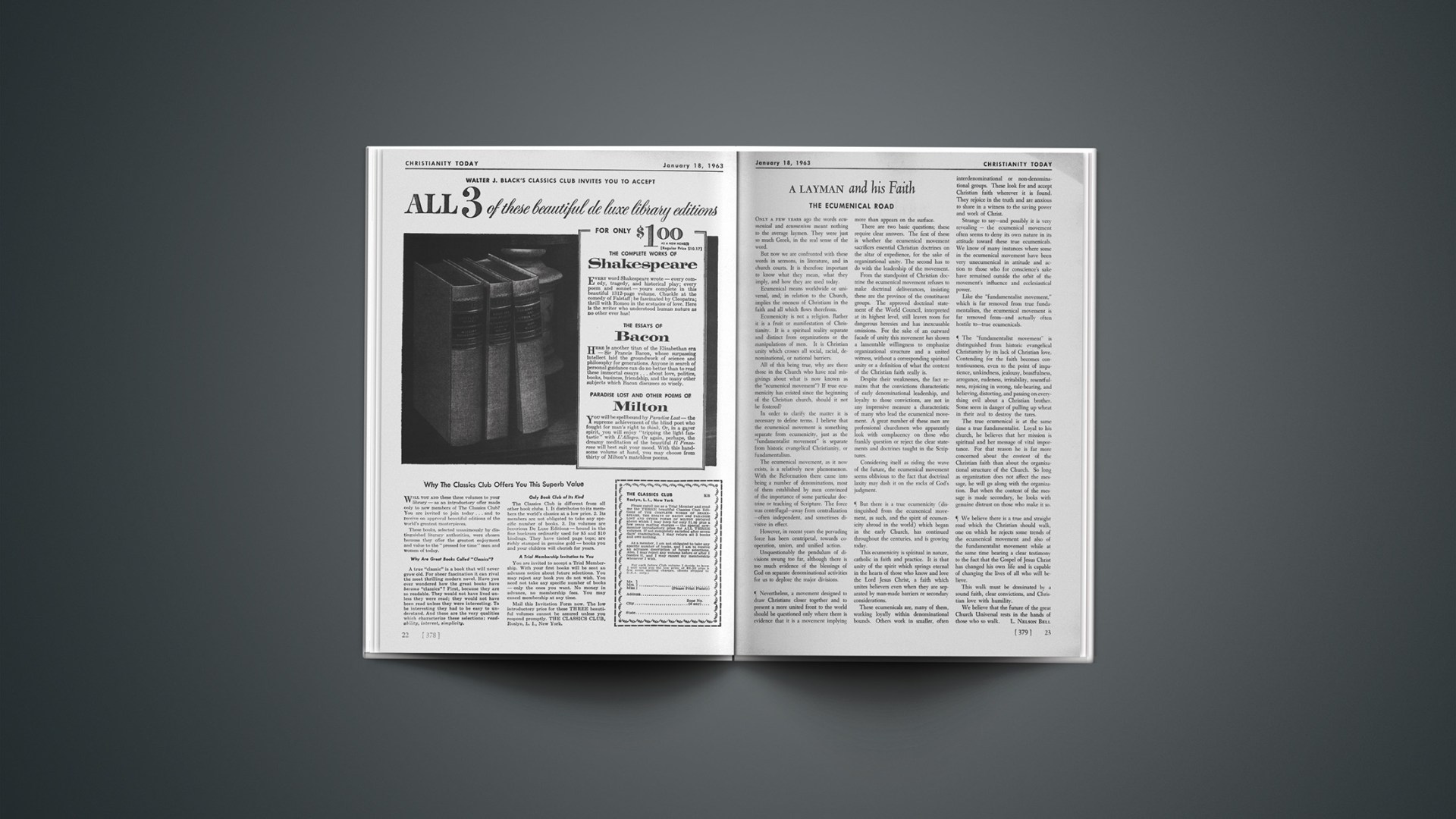A chaplain in San Quentin Prison wrote a book, an A excerpt of which appeared recently in the Reader’s Digest. In this selection the chaplain tells of visiting a man who had been confined to Death Row for nearly 11 months. This man—a neurotic and alcoholic—had strangled two women during a drunken orgy.
The chaplain talked with the prisoner for at least 40 minutes before the condemned man went into the gas chamber to die. The two conversed about education, about art, about sports. But the prisoner went to his death with no invitation to God. Nonetheless, the chaplain found himself praying that God would receive the condemned man, found himself wondering if he had witnessed not only a case of retribution, but also a crucifixion.
One disturbing sentence in the chaplain’s account gleams with neon sharpness: “I haven’t mentioned religion.” Then he adds: “Perhaps it is not necessary to speak God’s words in order to serve His purpose. Just being there with Richard Cooper in his last moments may be enough to show him that no man is ever completely cast out, or completely alone.”
With but 40 minutes left of a man’s earthly existence, the chaplain discussed education, art, and sports—but no religion! Of what use are education, art, and sports to a doomed man? Only a few more heartbeats and the man will be finished with all earthly things. Only 2,400 seconds more of time—and they talk about baseball!
Perhaps hundreds of clergymen read this article and silently cried, “Why couldn’t I have been there to speak at least one ‘thus saith the Lord’ to this man poised on the brink of eternity?”
Granted, the Word may have come too late, or the man may have been past the point of acceptance, or he may have rejected the message. But who can tell—he might have found salvation! The thief on the cross had but little time, too! What’s more, whether the condemned man would have accepted it or not, was it not the responsibility of this minister of the Gospel to offer redemption in Christ? While we have no guarantee that men will accept salvation, we are commanded to declare it nonetheless.
Perhaps we have misunderstood the chaplain’s position in this case; he may have omitted certain facts that would alter the record presented. But as the article stands, it symbolizes something that happens quite often. Are we withholding the Word? Do we expect to accomplish God’s work without “speaking God’s words”? “Just being there with” people is not enough. If we bear witness only to ourselves, they may think we have little to offer them. Talking about education, art, sports, or about any of a thousand other things will never confront men with their need of eternal life. These things have their place and their value, but they are powerless to redeem the soul.
Let’s face it. Not only was that San Quentin prisoner going to die—all men are going to die! Unlike Richard Cooper, we in our cosmic death row may not know the appointed time of our demise. But our end is no less sure and inevitable. We march just as inexorably toward the last exit as he did. What assurance have we that the young robust man we speak with today has any more time left than Cooper’s 40 minutes? Shall we discuss with him college, books, drama, athletics, but skip religion?
What we are emphasizing applies especially, perhaps, to the minister of the Gospel. If he knew he were to preach the last sermon of his life, what would a man preach. Suppose he knew that 50 of his parishioners—50 unsaved persons—would die before he stood in the pulpit again: what would he preach? What sin bears greater consequences in the long run than that of withholding God’s truth from man?
Every Christian has a divine mission, that of taking the Gospel to every man in all the world. Because acquaintances may not wish him to fulfill this mission is no excuse for exemption from duty. How often the primitive church was disliked for doing its God-given task!
Even if we perform our mission rather poorly we are to fulfill it nevertheless. Not everyone is qualified to present the truth in expert fashion. Think of those suffering but singing people in the Acts of the Apostles. While they often lacked propriety, they did not lack spiritual power. They were often misunderstood. They were cursed and beaten. But they were people of the Word such as history has seldom seen. And that Word so worked abroad in the world that Rome herself could no longer halt the march of the Cross.
“Perhaps it is not necessary to speak God’s words,” the San Quentin chaplain said. But it is necessary. Our own words are never good enough. Only Spirit-charged truth can penetrate the defenses with which lost men surround their souls. “… The words that I speak unto you,” said Jesus, “they are spirit, and they are life” (John 6:63).
The Word of God is a quick, sharp sword piercing the thoughts and intents of the human heart (Heb. 4:12). It is a gentle rain; falling on barren desert, it makes the dust to burst into bloom (Isa. 55:10, 11). It is a seed; dropping on barren ground it brings forth a golden harvest (Luke 8:11). It is a fire that burns into the soul, a hammer that breaks the resistant stone (Jer. 23:29).
Millions throughout the ages have acknowledged this Word to be the power of God unto salvation. This Word has laid hold of men at the brink of hell and snatched them back. It has changed multitudes of derelicts to messengers of hope. Like the disciples we must say of Jesus’ power: “What a Word is this!” (Luke 4:36).
Are we to replace this wonderful, this terrifying Word with words about secular things and fancies? In a 40-minute period of grace before death Jesus is far better than Hemingway, Paul far better than William James, Isaiah than Rembrandt, Luke than Mickey Mantle!
Especially those called to the ministry are responsible for offering the “word of reconciliation” (2 Cor. 5:19). Said Paul, “… Ye shine as lights in the world, holding forth the word of life …” (Phil. 2:15, 16). Faith comes by hearing, says the Apostle, but by hearing what? “So then faith cometh by hearing, and hearing by the word of God” (Rom. 10:17).
Suppose the Apostle Paul were sitting in a death cell with someone who in half an hour would go to a Roman gibbet. Would he speak about his studies under Gamaliel? about the philosophy of Seneca? Or would he discuss the chariot races in Rome and the wrestling matches in Athens? The answer to these questions is obvious. If the Apostle did use such themes, they served only as launching pads for his Gospel rockets!
A famous missionary once said, “When you put forth God’s Word in your witness the Holy Spirit backs you up.” True! When we give the Word of God to men, it speaks with an authority we ourselves do not possess. While some will reject it and others will be angry at it, still some will be saved by it. Is the rescue of these few by the Word not far better than losing all by conversation about literature, art, basketball, or the atomic bomb?
We may not always wield the sword of the Spirit successfully; it alone, however, is the weapon of victory. In this business of redemption other weapons are of no avail. Our assignment, however ridiculous it may seem to the sophisticated, comes from the Bible: “… He that hath my word, let him speak my word faithfully. What is the chaff to the wheat? saith the Lord” (Jer. 23:28). Chaff may have its purpose and its place, but it is nothing compared to wheat.
When a man has but 40 minutes to live, give him the Word of God! Even if he has 40 years, still give him the Word.
END

